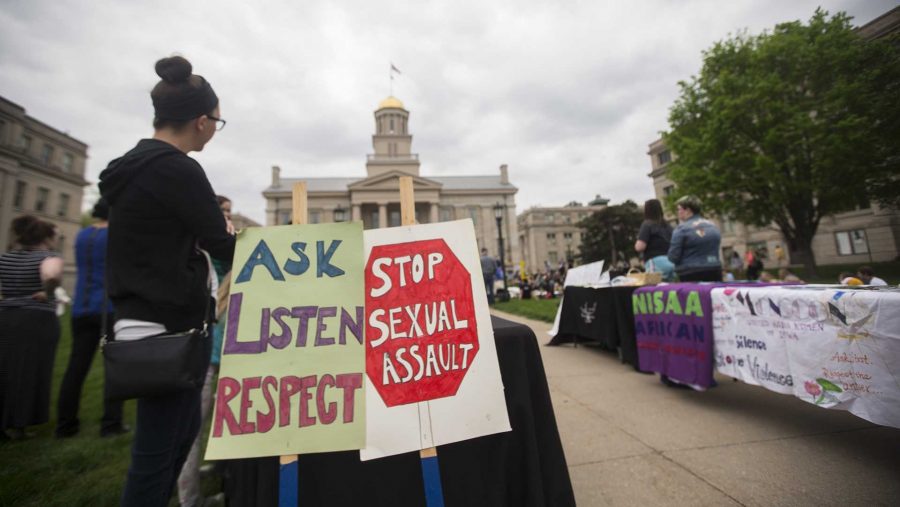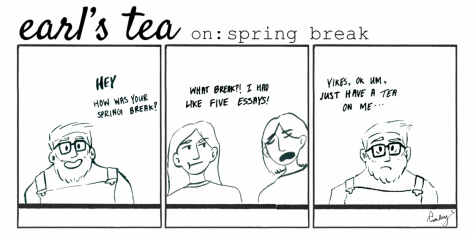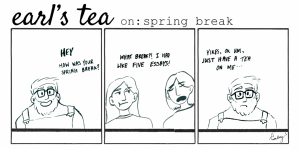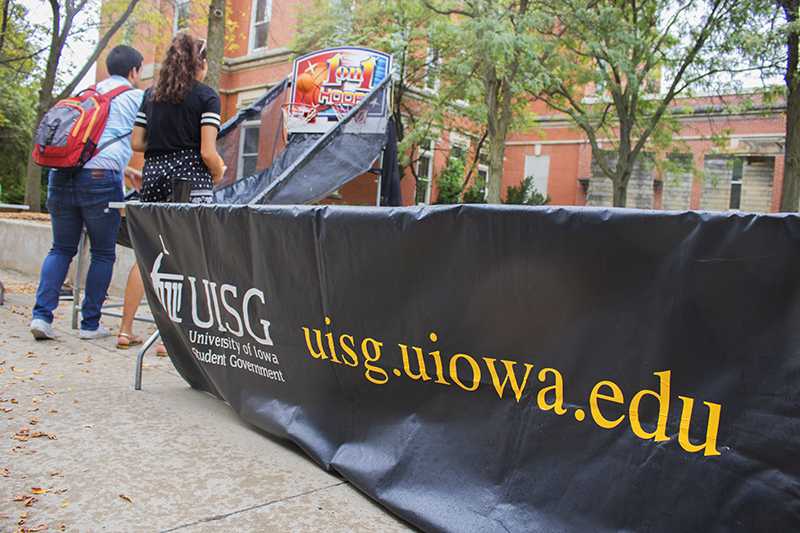Newby: Reporting sexual assault needs to be easier, and apps are making it possible
The number of times that sexual harassment and assault go unreported is astounding — and so, there needs to be an easier way for people to report. New applications are offering just that.
The Daily Iowan; Photos by Josep
Community members participate in a march for Take Back the Night on Tuesday, April 25, 2017. Take Back the Night was a sexual assault awareness event. (The Daily Iowan/Joseph Cress)
March 28, 2019
The age of #MeToo has woven a resilient community made up of silence-breakers and freedom fighters that spans generations and geographic location. Yet — while the wave of #MeToo has given people a place to put their stories, experiences, and heartbreak — sexual harassment and assaults are still severely underreported.
But a fast fix is on the rise as app-developers offer a free platform for people to report their experiences and find case-specific resources.
The wave of stories that have surfaced since #MeToo offers insight into the devastating contrast between the number of assaults that take place, specifically on college campuses such as the University of Iowa, and the number that are reported.
According to the Rape, Abuse, & Incest National Network, only 230 out of every 1,000 sexual assaults are ever reported to police — meaning that three out of four assaults go unreported and 80 percent of female college-students refrain from reporting.
RELATED: Newby: Confronting sexual harassment and assault in college is crucial
The reasons for refraining from reporting scale the number of stories that have been spotlighted in the media and on campuses. People are afraid to report — and the roots behind this fear digs deep into retaliation from perpetrators, recognition by members of the community, victim-shaming, and more.
Downloadable applications aim to meet survivors in their fear by allowing them the freedom to find what they need when they need it without the weight of reporting face-to-face.
“People want to feel safe. People want to be treated with dignity and respect, and they want to be heard,” said Ariel Weindling, the chief executive officer of #NotMe. “People want to be believed, and they want to be heard.”
#NotMe serves as one of the applications that are committed to building a platform for people to report sexual harassment and assault. According to the its website, the app is “the safe place to discreetly and easily report questionable or inappropriate conduct such as harassment, discrimination, or bullying.”
#NotMe is not the only application that is going lengths to lift the burden from survivors of reporting face-to-face. Callisto and Jdoe also offer platforms to report experiences of harassment or discrimination. Jdoe serves as an anonymous platform, and Callisto is a “nonprofit that creates technology to detect repeat perpetrators of professional sexual coercion and assault.”
RELATED: Baller: College students continue to take on dangerous spring break options
These apps used for reporting are able to either send the report directly to higher authorities, being law enforcement or legal help, or keep it archived with time stamp of sorts until the user is ready to submit it.
Karine Teffah, the chief marketing officer of #NotMe, said the app connects its users with a team of lawyers, psychologists, therapists, and people who work in the legal system in some other form. And people are using it safely and easily.
NPR reported that people who have used the applications have described the process as being far less traumatizing than reporting face-to-face. Because when reporting face-to-face, people often have to recount in detail what they’ve experienced — while reporting through an app gives people the comfort of and freedom from not having to verbally relive their experiences.
Reporting apps continue to change the way confronting sexual harassment and assault occurs in the workplace and on campuses by making the process easier, accessible, and offering abundant resources for people to take action.
“The main issue with sexual assault is that people aren’t talking about it. When this happens to a person, they don’t want to talk about it — they want to hide it away,” Teffah said. “With something like this, we want to [encourage] them to speak up … The message we want to give [is that] it’s a tool for people to be empowered.”





















